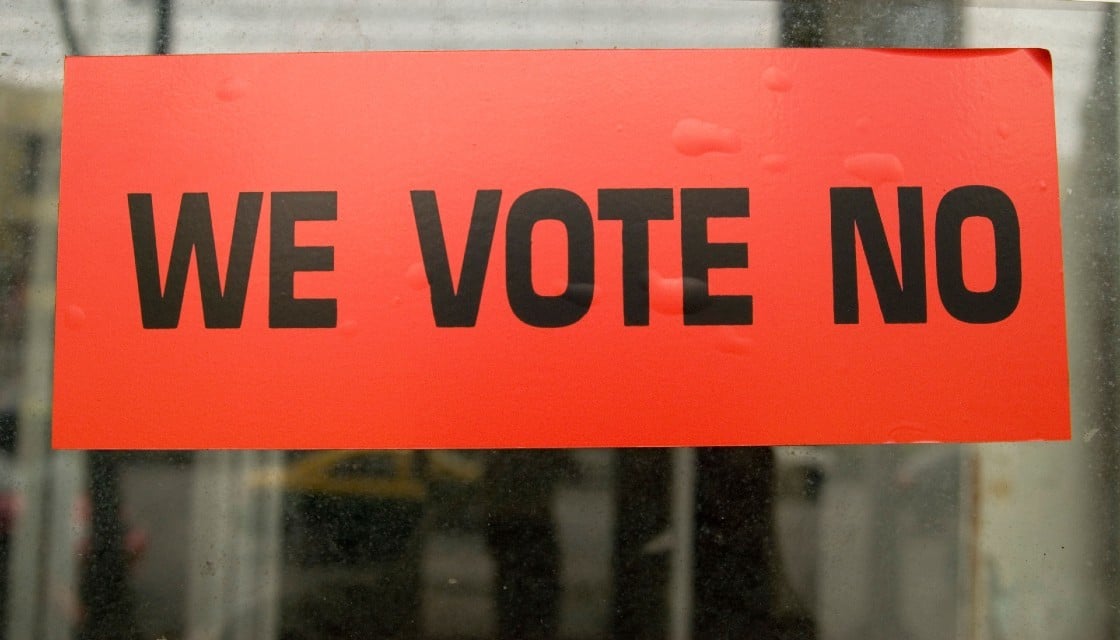After months of wrangling and millions of dollars spent, it appears the two California sports betting propositions on the November ballot face long odds.
Both Prop. 26 and Prop. 27, which would legalize differing forms of sports wagering in the Golden State, have generated massive amounts of interest and dollars so far, knocking off 2020’s Prop. 11 as the most expensive initiative campaign in the state’s history.
So far, more than $400 million has been expended on the propositions.
But it looks like neither side will get the desired return on their investment.
Where Both California Propositions Stand
Despite the jaw-dropping sum of money spent, support for both propositions has consistently declined since they became official ballot items earlier this year. A recent Public Policy Institute of California poll indicated support for Prop. 27 is 34%, while some in the sports betting industry believe current support for the two propositions is less than 30%.
Prop. 26, also known as the Legalize Sports Betting on American Indian Lands Initiative, would legalize retail sports betting at tribal casinos and licensed racetracks in the state.
The main backers of that proposition are the Pechanga Band of Luiseno Indians, the Yocha Dehe Wintun Nation, and the Agua Caliente Band of Cahuilla Indians.
Prop. 27 (aka, the Legalize Sports Betting and Revenue for Homelessness Prevention Fund Initiative) would legalize online sports betting while using 85% of all tax revenue to address homelessness and mental health services in California.
Brendan Bussmann, who serves as the managing partner of gaming consultant firm B Global, told BetCalfornia.com the negative campaigning between the two propositions seems to be sinking both.
“As the money continues to flow, so do the hits to Prop. 27 that keep coming,” Bussmann said. “Based on everything I continue to see and provided there is no October miracle, both initiatives have died the death of a thousand cuts because of the pounding that [Prop.] 27 has taken.”
Brandt Iden, who is a former Michigan legislator that now serves as the head of government affairs at Sportradar, echoed Bussmann’s comments.
Iden, like Bussmann, sees both propositions ending in defeat this November.
The California Republican Party came out in opposition to both propositions in August. The state’s Democratic Party announced its opposition to Prop. 27 in late July, while saying it would remain neutral on Prop. 26.
The Los Angeles Times Editorial Board came out against both propositions last week.
“The fight over control of the California market rests with the outcome of these initiatives, which is why there’s been over $400 million in combined advertising spend to date, and I anticipate that by the time we hit election day, it’ll be closer to a half a billion dollars,” Iden said in an email to BetCalifornia.com. “Unfortunately, despite this massive amount of campaign spend, I anticipate that both of these proposals are likely to fail. Voter confusion, combined with frustration and ambivalence, could take both of these down and send the industry back to the political poker table for another round of antes."
Remember, if mobile sports betting is legalized in the state, BetCalifornia will be the place for California sportsbook promos. Until then, would-be California bettors can monitor Caleb Williams Heisman odds.
What Happens if Neither Betting Proposition Passes?
In the event both Props. 26 and 27 go down this fall, the state would be back on the long road to sports wagering.
The conversation about the future of sports betting in California will revolve around the state’s tribes, Bussmann said, meaning online sports betting companies will have to find a solution that includes the tribes.
“As I have said from the beginning, all roads go through the tribes,” Bussmann said. “With that said, you have to get a majority of the tribes on the same page first. It’s likely that sports betting could be live in 2023 had there only been a land-based model, but this will take time to reach a compromise.”
Bussmann believes both the online sports betting companies and tribes will have to find a way to work together to put forth a unified sports betting proposition in the future in order to maximize their chances of getting wagering across the finish line.
“All roads also look to the voters on how this gets done so whether that is 2024, 2026, or beyond, it is the best approach,” Bussmann said. “But you have to have one single initiative otherwise you repeat the fate of this year and almost every other time you have competing initiatives."
And once online sports betting does pass in the Golden State, you can bet that California online casinos could be the next target for legislators.






